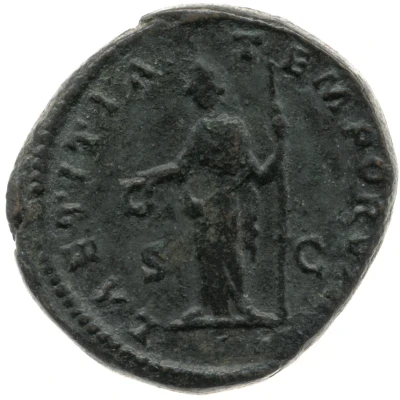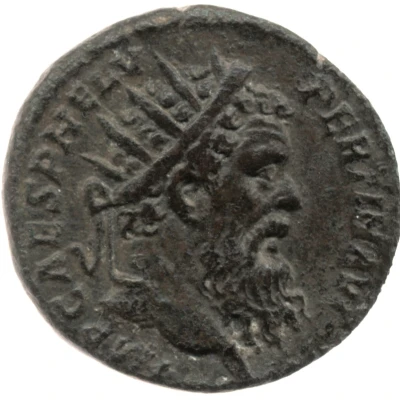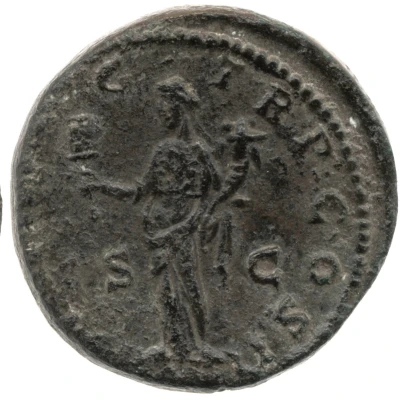


© Trustees of the British Museum
Dupondius - Pertinax LAETITIA TEMPORVM S C; Laetitia
193 year| Bronze | 12.6 g | - |
| Issuer | Rome › Roman Empire (27 BC - 395 AD) |
|---|---|
| Emperor | Pertinax (Publius Helvius Pertinax) (193) |
| Type | Standard circulation coin |
| Year | 193 |
| Value | 1 Dupondius = ⅛ Denarius |
| Currency | Denarius, Reform of Augustus (27 BC – AD 215) |
| Composition | Bronze |
| Weight | 12.6 g |
| Shape | Round (irregular) |
| Technique | Hammered |
| Demonetized | Yes |
| Updated | 2024-10-06 |
| Numista | N#267858 |
|---|---|
| Rarity index | 100% |
Reverse
Laetitia, draped, standing left, holding wreath in right hand and sceptre in left hand.
Script: Latin
Lettering: LAETITIA TEMPORVM S C
Translation:
Laetitia temporum. Senatus Consultum.
Joyous times. Decree of the senate.
Comment
Example of this type:Trustees of the British Museum
Source:
Online Coins of the Roman Empire (OCRE)
Interesting fact
The Dupondius - Pertinax coin was minted during the reign of Emperor Pertinax, who was the first emperor to introduce a new system of coinage that was based on the bronze dupondius, which was equal in value to two sestertii. This coin was a significant departure from the previous coinage system, which was based on the silver denarius, and it marked a shift towards a more affordable and accessible currency for the common people. The Laetitia (LAETITIA TEMPORVM S C) inscription on the coin, which means "joy of the times," suggests that the coin was intended to symbolize the prosperity and happiness of the Roman Empire during Pertinax's reign.

